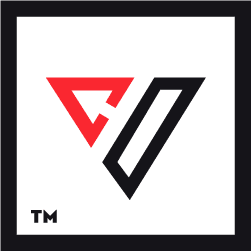With the rise in custom eCommerce website development and online retail stores globally, there are many exciting web development trends to consider. For example, using video for promotional content and sales can foster a better user experience on computers, tablets, and mobile devices. Online stores have also employed artificial intelligence (AI) technologies to expand the online retail sector and provide better deals to customers with more advanced eCommerce website designs.
At the very beginning, eCommerce website development involves developing the technical aspects of your eCommerce website and how it functions, accepts payments, behaves in response to a user action, and the overall aesthetic and flow.
Let’s discuss the 101 on custom eCommerce website development, from the foundation to benefits, outsourcing, and partnerships with software development teams.
The Foundation of Online Retail & eCommerce
There are an estimated 12 million active eCommerce stores, online businesses, eCommerce companies, eCommerce businesses, eCommerce websites, and custom eCommerce websites worldwide. With all that competition, it’s easy to get lost in the crowd.
The key to standing out with your online store is to create a high-quality custom eCommerce website to give your customers a unique experience. Consumers shop online and want all the features to be easily accessible, intuitive, and functional. In short, custom eCommerce development is what gives customers the experience they need.
Custom eCommerce website development develops the technical aspects of your eCommerce website, from how it functions to how it accepts payments, behaves in response to a user action, and how it appears aesthetically.
In 2022, the eCommerce website platform, eCommerce companies, online stores, eCommerce sites, and online business industry will be valued at over $11 billion.
And the software development, website development, custom development, eCommerce web developers, web development, and software development company industry opens the door for business owners to launch user-friendly websites and solve their most pressing eCommerce challenges.
This includes:
- Deciding upon the best features and functionality for your custom eCommerce website;
- Understanding which custom eCommerce business framework will suit you best;
- And how to integrate a custom eCommerce solution into a current website.
What You Need to Know Before Jumping In
When it comes to building out your custom website development, custom eCommerce website design, and eCommerce website, there are a few different options, including building your eCommerce website from scratch with the help of development services and a development team, creating your eCommerce store from a SaaS (software-as-a-service) solution, and harnessing the power of MACH architecture.
Create an E-commerce Platform with a Development Partner
If you’re interested in an innovative shopping platform, it’s best to build an eCommerce website from scratch. This includes hiring a web development group with custom eCommerce development services to assist your eCommerce website development process. The eCommerce web development team will be able to walk you through the development process from start to finish.
Open-source eCommerce platforms are solutions to modify all aspects of the code. You can build your eCommerce websites, eCommerce project, and custom eCommerce solutions from scratch with few to no customization limits.
Remember that using an open-source solution often means that your E-commerce website business has business requirements and is responsible for any web hosting, manual patches, security, and updates.
For this reason, some eCommerce website brands may view open source as too cumbersome, expensive, and tech-heavy, especially as your business grows and the complexity of your eCommerce website increases.
Simple eCommerce Website Development Using a SaaS Solution
Many eCommerce website companies just don’t have the development budget or website development resources to invest in entirely custom web development services. The good news is many SaaS solutions are cost-effective, easy to use, and replace the need for costly eCommerce website development services and a custom solution.
SaaS is a subscription-based solution built and maintained by a third-party vendor and may be hosted on the cloud—an on-demand data storage. Instead of custom eCommerce web development building, SaaS enables businesses to bypass the complex development process and go to market quickly and affordably.
The Benefits of Custom eCommerce Website Development
On a different note, there are many benefits of custom eCommerce web development. For one, you can invest in eCommerce SEO and online marketing and create stronger relationships with your target audience. SEO optimization is essential for your business, from keyword research to organic search and link optimization.
Suppose you optimize your E-commerce website according to local SEO best practices and user experience tactics. In that case, you’re more likely to increase your search engine rankings on Google, which means more organic search traffic, more significant website traffic, more sales, and increased brand awareness.
Choose the Right eCommerce Web Developer
So, how do you choose the right eCommerce web developer?
For one, their skillset must align with what you need. They must understand the eCommerce website design you have in mind and excel in front-end and back-end development. Online shoppers want a simple and intuitive interface with clear calls-to-action (CTAs), an easily-accessible shopping cart, and marketing tools that make your brand, products, and services comprehensive and straightforward.
Shockingly, 88 percent of online shoppers say they wouldn’t return to a website after having a bad user experience; and 70 percent of online businesses that fail do so because of bad usability. This is critical to note. After all, without happy customers, you won’t have sales, which means your business will fail.
The best way to ensure your eCommerce web development team provides a better user experience on your site is by hiring one with experience designing and developing for E-commerce businesses specifically.
Some eCommerce web development services excel at the front-end, with beautifully designed interfaces and a well-thought-out user experience. In contrast, others excel in back-end customization and technical implementation, which benefits your internal sales, warehouse, and marketing teams.
When interviewing potential eCommerce website development services for their compatibility with your e-Commerce team, ask about their strengths and weaknesses and ensure they are an excellent fit in personality, skill, and professionalism.
While some e-Commerce developers will showcase that they are capable of both back-end development and front-end design, generally, one takes precedence as their primary focus. Take note of this and ensure the e-Commerce developer you go with has skills that align with your specific eCommerce website design needs.
For example, you might be interested in eCommerce SEO. Your developer would need to have an excellent understanding of meta-data, tags, and links required to reach a superior SEO score on Google and other search engines.
Here are some of the top elements to consider when developing your custom E-commerce website:
- Mobile-responsiveness
- Shopping cart design
- Product filtering
- PCI compliance and web security
- SEO (search engine optimization)
- Multiple payment options and gateways
- CMS (content management system) integration
- Customer feedback
- Responsive design
eCommerce Website Functionality to Consider
The various features and functionality you might consider incorporating into your E-commerce website vary greatly based on your unique business model, strategy, and the wants and needs of your consumer. This is known as your why.
It is helpful to consider creating a list of critical features your E-commerce website must-have. These must come back to your vision and the goals or stepping stones you’ll take to get you there.
They should also be closely aligned with your customer lifecycle—the process of prospects becoming aware of a product, making a purchase from a brand, and ideally becoming a company’s longtime customer. The process comprises five stages: reach, acquisition, conversion, retention, and loyalty.
An easy way to determine what features you need on your eCommerce website is to move from general to specific.
- List all the general must-haves, such as preferred payment gateways or marketplace integrations.
- Add extras that your business needs, like automatic sales tax and shipping rate calculation.
- Prioritize all the nice-to-haves from 1 to 10, with 1 being a crucial feature for driving revenues and ten as a handy add-on that could improve day-to-day operations, making internal processes more efficient.
SEO Capabilities
Search engine optimization (SEO) is a distribution strategy for your written content and an essential aspect of your E-commerce design.
Ranking highly on Google and other search engines for relevant keywords and clusters can help drive traffic to your site from relevant users searching online for products and services your business offers. SEO can organically deliver you potential clients with high user intent who are more likely to convert, making SEO traffic more cost-effective and retail sales.
eCommerce Site Speed
You may have heard software developers discussing site speed. Essentially, this is how fast your website and web pages load, how responsive the website is to user actions, and how functional and pleasant the user experience is overall.
According to a study by Amazon, the bounce rate increases dramatically with every second added to a landing page’s load time.
Fast-loading sites are also a significant plus for SEO since Amazon, Google, and other search engines include site speed as a ranking component.
This is why you must consider hiring eCommerce website developers who are highly skilled and know how to optimize your eCommerce store to be functional, attractive, and fast-loading for your target audience.
Content Management System (CMS)
A content management system (CMS) is critical for an eCommerce website. It houses dynamic content, including blog posts, visual elements, multimedia content, and other design elements.
A CMS allows business brand owners to change old content, repurpose content, write new content, and more. The updates and additions are automatically reflected on a brand’s eCommerce website. It is a highly intuitive and user-friendly addition to a custom eCommerce website that makes brand management simpler.
Payments & Checkout Functionality for an eCommerce Site
eCommerce websites must boast every payment option, from Apple Pay to credit cards and even cryptocurrency. Studies show that flexible and seamless payment options speed up the decision-making process for nine out of ten shoppers, prompting them to make rash decisions and spend more. That’s right. Users spend more. Therefore, it’s crucial that your eCommerce platform can integrate with multiple payment gateways.
Developing an online eCommerce store means dealing with sensitive data, such as customer addresses, credit card numbers, and other payment information. As an eCommerce brand owner, you are responsible for keeping this information safe and protected. Therefore, ensure your custom eCommerce website developer understands the ins and outs of security to keep your eCommerce businesses online store safe and secure.
Integrations
Face it. No eCommerce platform will come with every single feature you want natively. You’ll need to make sure your platform enables you to customize your site by offering plugins and integrations with the solutions you and your consumers want and need.
Consider each eCommerce solution and what it provides to you and your consumer—from social media integrations to recommended products based on your shopping cart, shipping software integrations, accounting management systems, customer support software, and a multichannel inventory management system. There are many integrations. It all depends on your specific strategy and consumer needs.
In addition to your online store, remember that users also want a mobile-friendly option. Communicate this to your developer and ensure they create a seamless experience for your user, whether on a computer, tablet, or mobile device.
Consider Outsourcing via an Agency
There are many factors to consider when considering hiring an internal team versus outsourcing via an agency for your custom eCommerce website development.
For one, you must understand your business goals. You can’t proceed to sell products online until you know your vision, beginning with your why.
Why do you want to sell online? To attract more business and increase sales, how do you plan to make this a reality?
Ask yourself the following questions.
- Will you use your eCommerce business as an avenue for direct-to-consumer sales?
- Do you want to drive online traffic to supplement brick-and-mortar operations?
- Do you want to expand a B2C business to B2B or vice versa?
Apart from your primary goals, think in terms of eCommerce metrics.
- What’s your plan for growing a customer’s lifetime value?
- How many products do you plan to sell?
- What kind of growth would you like to see post-launch, and how will you measure it? For example, what’s your weekly online sales volume goal?
- Do you plan to sell locally or internationally, too?
Next, you must understand the intended shopping experience. What kind of online shopping experience do you want to provide to your customers? Some of the unique features you may want to consider include:
- Enabling your customers to filter search results by size, color, or price,
- the ability to compare products side-by-side,
- offering an optimized, one-page checkout experience,
- and promotions, discounts, and other types of offers.
With these in mind, you can better determine whether an agency or internal team will provide better eCommerce solutions for developing your online store. You must also understand your eCommerce website design, goals for your online business, budget, time, and resources.
What’s Next?
So, what’s next?
If you need an optimized eCommerce website to sell your products 24 hours a day, seven days a week, interview web developers who can help you discover the best ways to sell your products online through your eCommerce website
At the very beginning, eCommerce website development involves developing the technical aspects of your eCommerce website and how it functions, accepts payments, behaves in response to a user action, and the overall aesthetic and flow.
From the foundation to benefits, outsourcing, and partnerships with software development teams, leap and elevate your new or existing eCommerce business.







